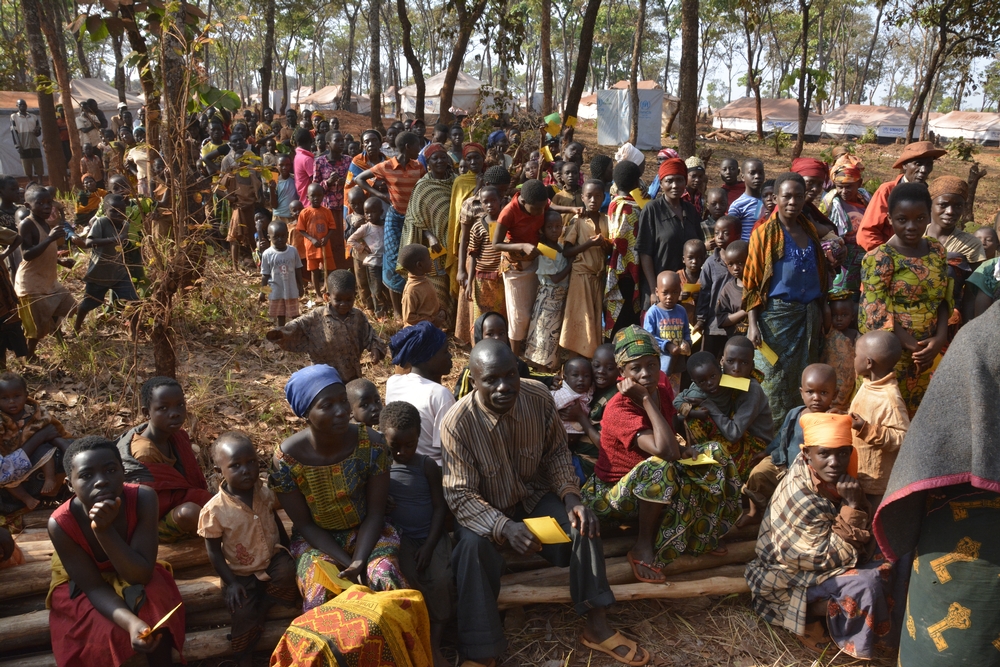A cholera vaccination campaign to protect Burundian and Congolese refugees in the overflowing Nyarugusu camp in Tanzania has been completed by Médecins Sans Frontières/Doctors Without Borders (MSF) this week, but there is still an urgent need to improve the sanitary situation in the camp.
The second round of the campaign, in response to an outbreak that occurred among the refugees in May this year, was finalised on Monday 27 July. More than 130,000 refugees were vaccinated in this round.
The oral cholera vaccine, which must be administered in two doses, offers a high level of protection against the disease. However, vaccination should be carried out together with other prevention and control measures, which are severely lacking today in the camp.

Essential response
"Vaccination is an urgent and essential response to prevent lives being lost, but to reduce the risk of new epidemics, sanitary conditions in the camp must be rapidly improved," says Sita Cacioppe, emergency coordinator for MSF.
The vaccination campaign was conducted in collaboration with the Tanzanian Ministry of Health, the World Health Organisation (WHO) and the UN High Commissioner for Refugees (UNHCR).
In the first round in June, 107,000 people – equivalent to 92 percent of the population at the time - received a first dose of the vaccine.
Insecurity around the elections in Burundi continues to push thousands of people across the Tanzanian border, and since the first round of vaccination, around 20,000 more people have been transported to the camp according to the UNHCR.
A catch-up round will soon be organised to give a second dose to the newcomers whose overall vaccination status is unclear.
Influx of refugees
The number of people living in Nyarugusu has more than doubled in three months, with political unrest and violence in Burundi driving some 82,000 Burundians to cross the Tanzanian border and join the 64,000 Congolese who have been living in the camp for nearly twenty years.
This rapid influx of refugees has overwhelmed all services and humanitarian organisations are still struggling to provide enough water, food and shelter.

Improving sanitation
"People are living in dusty overcrowded conditions; they endure cold nights and have to queue for hours for water.
“Although malaria is the main condition we treat, we also see also see a high number of respiratory infections and diarrhoea related to the poor sanitary situation."
“Such precarious living conditions give rise to the potential risk of epidemics. And with the rainy season coming, the situation may deteriorate even further, as many tents have been built in flood-prone areas,” Cacioppe continues.
Water distribution
Alongside our medical activities, MSF has set up a system for pumping and treating water.
Each day we are distributing more than 280,000 litres in five locations in the camp. But gaps remain in terms of sanitation.
"We keep explaining to families the need to wash hands with soap to protect against disease, but some have not received a single bar since their arrival. We expect to carry out a distribution, but we need other organisations to step up to help us improve this situation so we can focus on the medical needs."





